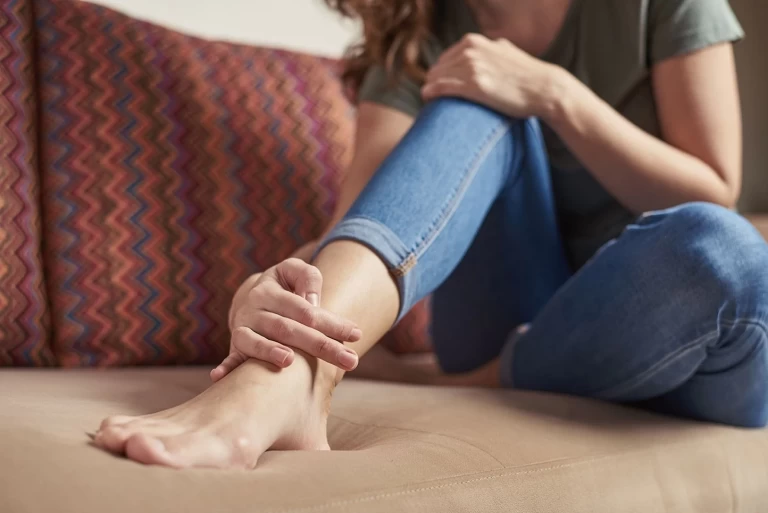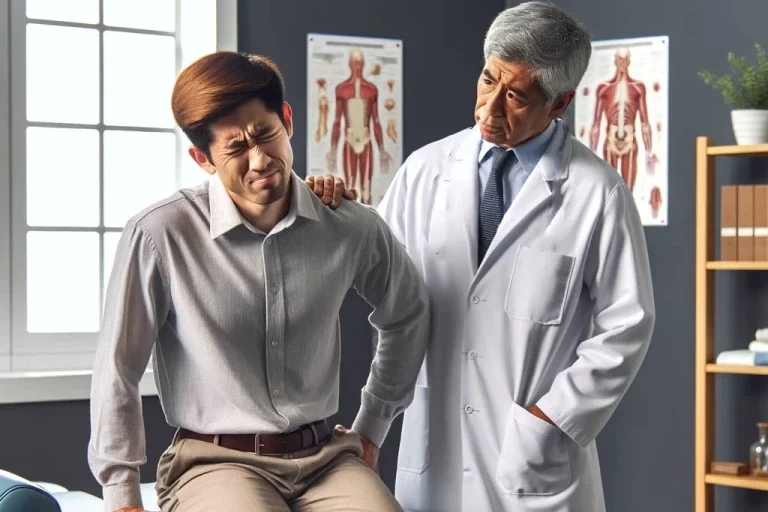
If you’re like many people, you probably think of joint pain as something that is associated with getting older or with overexerting yourself physically. After all, most of the time when we experience joint pain, it’s because we’ve been active and our muscles and joints are sore. But did you know that joint pain can also be a symptom of anxiety? In fact, for some people, joint pain from anxiety can be a regular occurrence. In this blog, we will cover a couple of topics related to this subject.
1. Anxiety can cause all sorts of unexpected symptoms, including joint pain
For many people, anxiety is something that manifests in their minds. It’s the feeling of being on edge, of worrying about things that may or may not happen. But for some people, anxiety can also cause physical symptoms. And one of the more unexpected symptoms is joint pain. Joint pain from anxiety can feel a lot like other types of joint pain. It can be achy and throbbing, and it can make it difficult to move the affected joint. The pain may come on suddenly or gradually, and it can last for a few minutes or a few hours.
There are a few theories about why anxiety might cause joint pain. One is that anxiety can lead to inflammation and that inflammation can cause joint pain. Another is that anxiety can cause muscle tension, and that muscle tension can put pressure on the joints and lead to pain. Whatever the cause, joint pain from anxiety is a real and frustrating symptom. If you’re dealing with it, there are a few things you can do to try to ease the pain. First, try to find ways to relax your body and reduce your overall stress levels. That may mean taking up yoga or meditation or simply making time for yourself to do things you enjoy. Second, if you know that your anxiety is triggered by certain situations or activities, try to avoid those triggers if possible. If you can’t avoid them, try to find ways to cope with the anxiety they cause. And finally, if your joint pain is severe or persistent, talk to your doctor. Some treatments can help, and your doctor can help you find the one that’s right for you.
2. Joint pain from anxiety is often mistaken for arthritis or another physical condition
This is because the symptoms can be very similar, and both conditions can cause a lot of pain. However, some key differences between the two can help you to identify whether your joint pain is coming from anxiety or not. One of the main differences is that anxiety-related joint pain is often worse when you are feeling anxious or stressed. This is because anxiety can cause your muscles to tense up, which in turn puts more pressure on your joints. Another difference is that anxiety-related joint pain is often more widespread than arthritis-related joint pain.
3. Ways to treat joint pain from anxiety, including therapy and medication
However, the best way to manage this anxiety symptom is to understand it and work with it. Joint pain from anxiety can be treated in several ways. The most important thing is to understand the condition and work with it rather than against it. Joint pain is a complex anxiety symptom and one that may be as much mental as it is physical. Medication can be used to control the pain, but it is often only a temporary measure. If you’re struggling with joint pain from anxiety, we encourage you to reach out for help. You don’t have to suffer alone. Some people can help you understand and manage your symptoms so that you can live a full and happy life.
4. Benefits of chiropractic care for those suffering from joint pain from anxiety
Chiropractic care is a type of alternative medicine that focuses on the diagnosis and treatment of mechanical disorders of the musculoskeletal system, especially the spine. Chiropractors believe that these disorders can cause adverse effects on overall health and be effective in treating joint pain from anxiety. A study published in the Journal of Manipulative and Physiological Therapeutics found that chiropractic adjustments were able to significantly reduce pain and improve function in people with anxiety-related joint pain. There are several potential benefits of chiropractic care for those suffering from joint pain from anxiety. Chiropractic care can help to reduce pain, improve range of motion, and increase mobility and may also help to improve overall health and well-being. Chiropractic care is effective in treating joint pain from anxiety, and it is a safe and non-invasive treatment option.
Here are some benefits of chiropractic care for joint pain from anxiety:
- relieve pain by realigning the spine and joints.
- improve range of motion and flexibility.
- improve posture.
- strengthen the muscles and ligaments supporting the joints.
- reduce inflammation.
- increase blood flow and circulation.
- reduce stress and tension.
- improve sleep quality.
- boost the immune system.
If you are suffering from joint pain from anxiety, contact us as soon as possible and we can help you right away, answering all the questions and concerns you may have.



